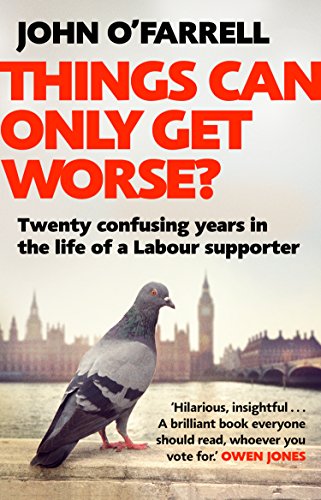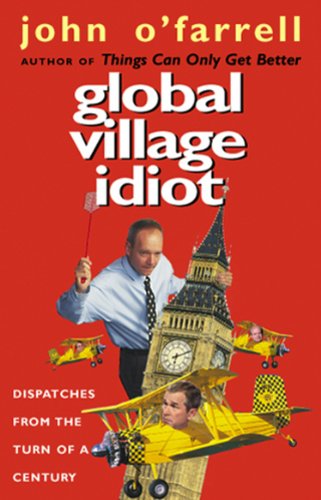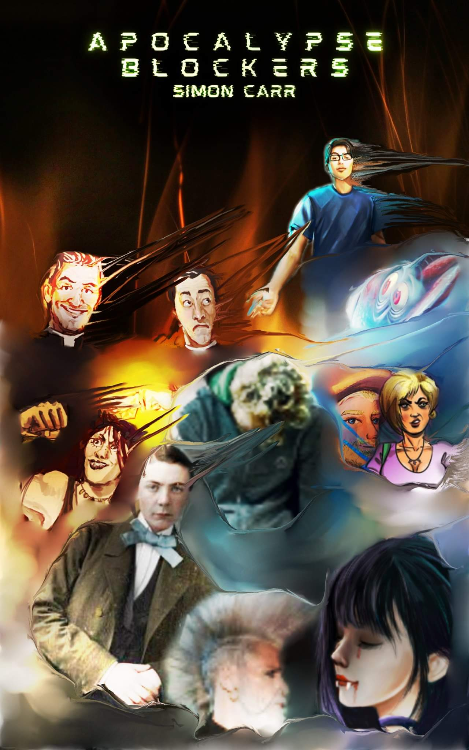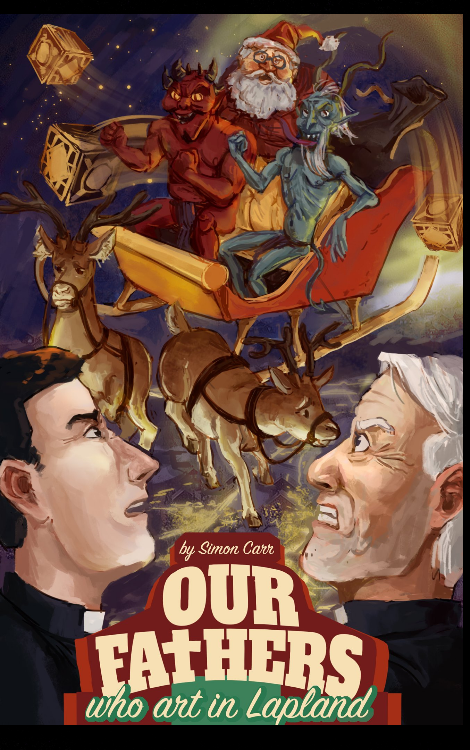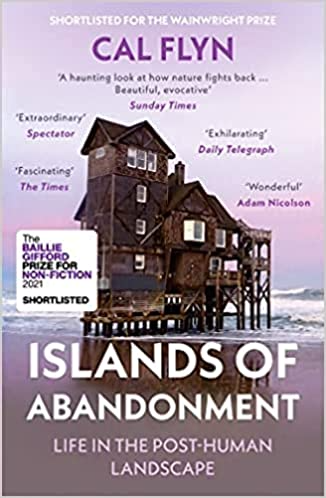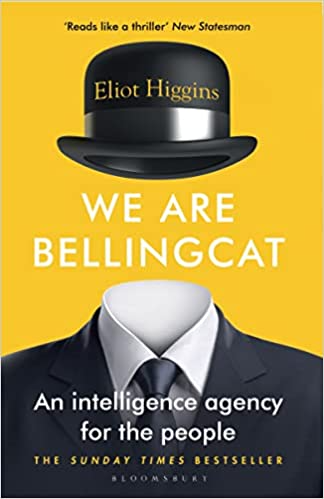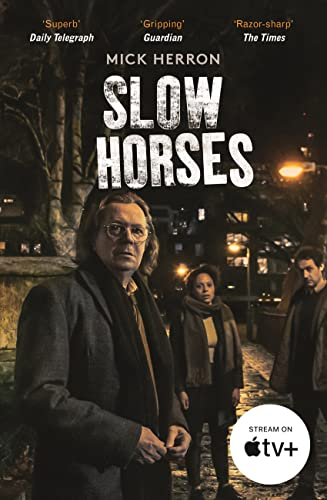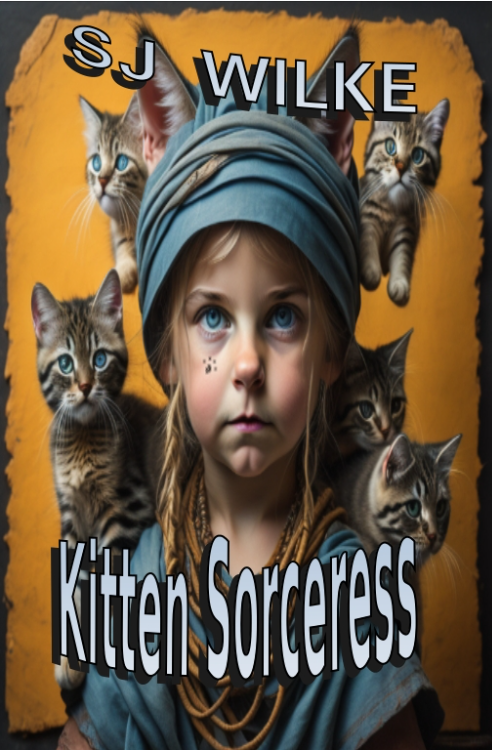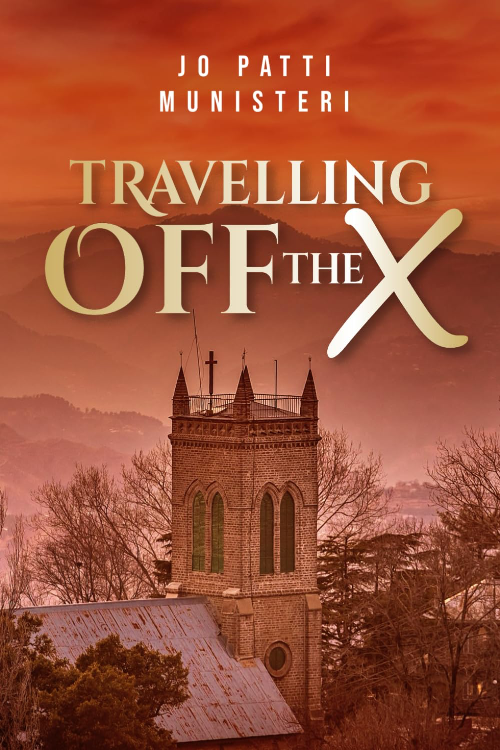John O'Farrell, still getting better
Interview by: Profile Editorial Team, 10/01/2021
John O’Farrell is a comedy writer with a wide range of TV and radio credits, including the iconic TV series Spitting Image, which skewered British politicians in the 1980s and 90s. Some probably still have flashbacks. Since then he has written books, musicals, podcasts and founded the British satirical website NewsBiscuit, which continues to provide a home for satire writing 15 years after its inception.
John, thanks for speaking to Profile. We have many readers from across the globe so we try to avoid politics – not least because of the scope for misunderstanding across different cultures - but we can’t really discuss your work without also discussing politics. Do you feel it’s important for comedy writers to tackle political subjects? What’s the place of comedy in politics?
John: Hello and thanks for talking to me.
I’m now going to show that I could never have been a politician by actually answering the question you just asked me! I suppose my work is often political because I am quite political. So I don’t say ‘comedy must tackle politics’ only that ‘I can’t avoid seeing it in pretty well everything.’ I do believe that not talking about politics is also a choice. The cartoonist in the Daily Telegraph whose funny cartoons suggest a world-weary sigh about the crazy state of the world is telling his or her audience that things were ever thus, and cannot be changed. In my experience people who say they are not political are just fairly conservative without necessarily realising it.
With regard to ‘What’s the place of comedy in politics?’ – I think because a joke can be the shortest distance between two people, comedy is a great way to push open the door and begin a dialogue. Back when I wrote on Spitting Image or Have I Got News For You, we tackled some quite dry and complex issues, but reached an audience of millions because people were there for the laughs. George Orwell said that every joke was a tiny revolution, but then again, there aren’t a lot of laughs in 1984.
a joke can be the shortest distance between two people
It’s difficult to overstate the impact which Spitting Image had, particularly in the early days when the format itself was fresh and new. Could you talk a little about the writing process for TV? According to our postbag, many of our readers fit the stereotype of the solitary writer, toiling away in an attic. You’ve done the solo ‘writer in an attic’ thing and you’ve also worked collaboratively – could you give us a flavour of what it’s like to work in a fast-paced TV show with other writers?
John: The pressure on Spitting Image was pretty intense when we were doing the topical writing days for that week’s news. We would have to write half the show in that day, based on whatever the breaking news stories were, and people were waiting on us to build sets, book voice artists or acquire props, but nothing could happen until we’d had an idea and turned it into pages of script.
But that provides a certain kind of adrenalin and focus – and we were a mutually supportive team, and helped one another out if one of us got stuck for a punchline or whatever. There is no room for ego or selfishness in that environment – you have to be objective enough to recognise when someone else might have just come up with a better idea than yours and switch to trying to make that work instead.
You never stare all day at a blank piece of paper in a writing team. I have had days like that when writing on my own, but sometimes you just have to push through and get something down, even if you know it’s a bit crap to start with. I like the total control of solitary writing, you don’t have long arguments about characters or motivations, but for quick turn arounds, you definitely need teams.
you just have to push through and get something down, even if you know it’s a bit crap to start with
You’ve said that your experience of working on BBC Radio 4’s ‘WeekEnding’ programme was the inspiration for your satirical website NewsBiscuit, where literally anybody can pitch a story. WeekEnding is no longer with us but NewsBiscuit is going strong. Could you tell us a little about these two institutions?
John: WeekEnding was probably more important as a developing ground for writing talent than it was as a comedy show. Just about anyone who was anyone in British comedy writing back then came through it, and the great thing was that they held these open meetings where anyone could just turn up to and pitch their ideas to the producer. I started to get sketches on the show and met up with another writer there (Mark Burton) and we got a commission to write on the show and before long were the lead writers. But of course behind this tale of ‘struggling writer makes good’ is a back-story of subtle privileges and latent self-confidence. Yes, I was quite good at Looking At The News in a Funny Way, but I also had a whole set of other intangible qualifications and hard-wired advantages that at the time I never realized were turning all the traffic lights green.
Virtually no women put themselves through this mill, or more likely if they did, did not feel very much like venturing a second time into the testosterone-fuelled bear-pit of competitive joke-shouting. And there was probably a certain amount of self-selecting going on too. Like all the other young men there, I had grown up in a world in which little boys made stupid jokes and little girls were expected to laugh at them. And there were other invisible barriers I’d walked straight past too. I looked and talked just like the producers giving out the commissions; we shared reference points, values and a failure to shake off our Home Counties accents. Of course, I never really thought about any of this at the time. All I thought was ‘I really want to get more sketches on than David Baddiel.’
But later in my career I thought about how great it had been to have that opportunity, and wondered whether the internet could provide the chance to open the door even wider. There was no daily news satire site like The Onion in the UK back then, (this was 2006) so I set one up and created a writing room, where writers could rework each other’s material, rate their peers and suggest improvements and hopefully get something on the front page and get better at comedy writing in a mutually supportive environment. I never gave the site quite the time it deserved and it got overtaken by other sites that came later like The Daily Mash or Newsthump, but I’m proud to have been the first, and that a number of new writers have gone on to bigger things after starting on NewsBiscuit.
For something like a novel, I need a hook to motivate me, an idea that I want to follow, a story to which I want to know the ending
In ‘Things Can Only Get Better’ you describe growing up a Labour supporter in a community where this made you an outsider, and your apprenticeship as a political activist. The book won awards, plaudits and lots of fans, not least for the warmth of your ‘voice’ as narrator. It’s a very personal account, laced with self-deprecating humour and modesty. Fast forward to 2021 and a social media environment in which disagreement is likely to spark a vicious attack, where different views are routinely blocked and debate is rarely civil. What advice would you offer to writers who want to contribute politically, but without adding to the viciousness? How do we connect?
John: It is true that we seem to live in a time of very binary debates, and although I am on Twitter, I don’t do that many tweets because otherwise I would end up losing a lot of writing time arguing with people who were never going to be persuaded anyway. I find twitter useful for discovering articles and opinions that might not cross my path otherwise, but social media can be the enemy of creativity. If you have something difficult and complex to say, say it in an article or a book or a play or poem or something – a place where the very genre is suited to thoughtful listening, not immediate shouting down!
Could we take a look at your writing process? For a novel, how many drafts, how much outlining do you do, how many surprises do you have as you get into the writing – any insights would be valued. The nuts and bolts of writing are endlessly fascinating to other writers. Plotting for a comedy novel is presumably pretty detailed? Or do you start broad-brush and then . . . discover?
John: For something like a novel, I need a hook to motivate me, an idea that I want to follow, a story to which I want to know the ending. I might write chapter one, in which we find out something surprising, and during that time, I am thinking (consciously and subconsciously) about how this might turn out. The more I get into it, the more ideas will start to flow, but I am planning and writing at the same time, always thinking about what the satisfying and surprising ending would be. Because without that you have nothing, and you definitely do not want to get 60,000 words in and still not know what happens at the end. So I am slightly obsessed with structure and story-telling grids and charts, I have read all the books and watched the tutorials, and although there are no rules, there are plenty of helpful route maps for when you get lost.
I love being deeply immersed in one project, and discovering that a random idea develops momentum and meaning. That said every morning when I face the blank page, I feel like I am learning how to write from scratch. But it is like going into a darkened room. I might know nothing about the scene I am about to write, but you just have to go into the darkness, and eventually your eyes start to adjust and you can find your way about…
The other bit of advice I would emphasise is that when you start something as big and ambitious as a novel, major things are going to change as you progress. If your lead character started out as a teacher, and halfway through you realise she has to be a policewoman, DO NOT GO BACK AND CHANGE IT ALL YET. Get to the end of the first draft with all its flaws and inconsistencies, you might change her job to something else again by the end, and there are hundreds of other things that you will realise you need to change, but the momentum you have built up to get to the end of your messy first draft is a precious thing and you do not want to waste it on multiple rewrites of Chapter One.
After my first draft, I will do a thorough rewrite, and then perhaps show it to a few supportive people whose opinion I respect, and then there will be several more rewrites, each time cutting and improving. I have actually started reading the whole thing out loud to myself, and that is a good way of realising that you are getting boring or keep using the same phrase.
I feel quite ambivalent about the power of satire to change anything – I think I have come to the conclusion that it actually helps the establishment in a perverse sort of way. We are angry with the government, we laugh at the government, and there it is, it’s been processed, deflected and dealt with.
You seem happy to work with varied media – puppets in Spitting Image, books, radio, TV, Web, newspaper columns, musicals. We’re tempted to ask when you’re going to settle down, but perhaps a better question would be about the role of the writer in the 21st century. Does the format matter? How do you see the role of the satirist in the future?
John: It is true that I have jumped about all over the place, perhaps because sometimes I have run out enthusiasm in one area and it’s exciting to be trying something new. I feel very privileged to be in my fifties and learning something new – at the moment how to write musicals; it’s not something I ever imagined doing. I chose to leave Spitting Image when it was still a huge show, I chose to give up writing my weekly column in the Guardian, even though I knew it would mean the invitations to Question Time or Newsnight might dry up as a result. But in both cases, I had been doing the same thing for five years, and the same stories or challenges kept coming round and I felt myself getting stale. Sometimes I will write in a certain genre simply because that feels like it fits the idea I have had. So I have a play I haven’t shown anyone yet sitting in a drawer that I wrote because that idea felt like a play, I have a novel I am developing because that story felt more like a novel.
It’s hard to know what the role of the writer will be in the future, but one thing I am sure about is that people will always need stories, whether in historical novels or futuristic computer games. The challenge for writers is getting paid for their creativity – perhaps the formats will choose themselves because they will be in genres that cannot be downloaded for free. That said, I make no money from my podcast that I do with Angela Barnes (We Are History) but for me that is fun and interesting, so I treat it like a sort of hobby.
As for satire – I feel quite ambivalent about the power of satire to change anything – I think I have come to the conclusion that it actually helps the establishment in a perverse sort of way. We are angry with the government, we laugh at the government, and there it is, it’s been processed, deflected and dealt with.
All in all, I have been a full time professional writer for over three decades now, and I thought I would end by writing down the most important thing I have learnt. I’ll have that for you by Friday. Next month at the latest.
Some of John's books:
John's Amazon page
Posted in: humour non-fiction

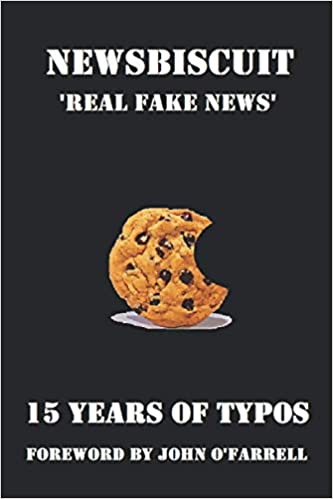
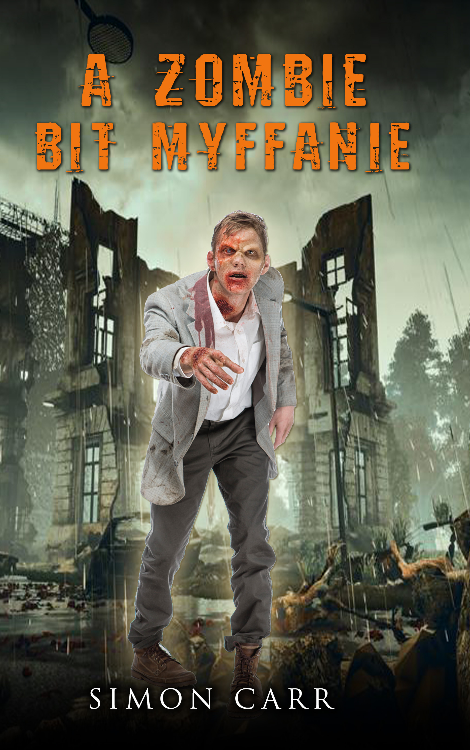
.jpg)
